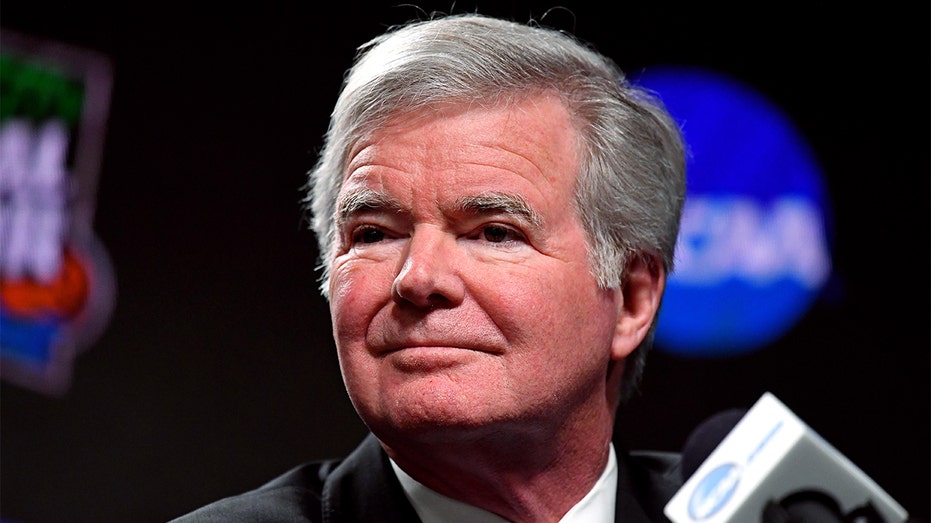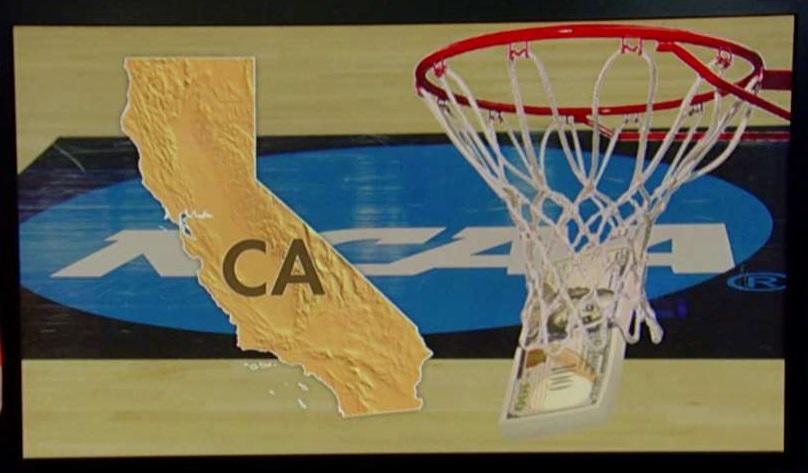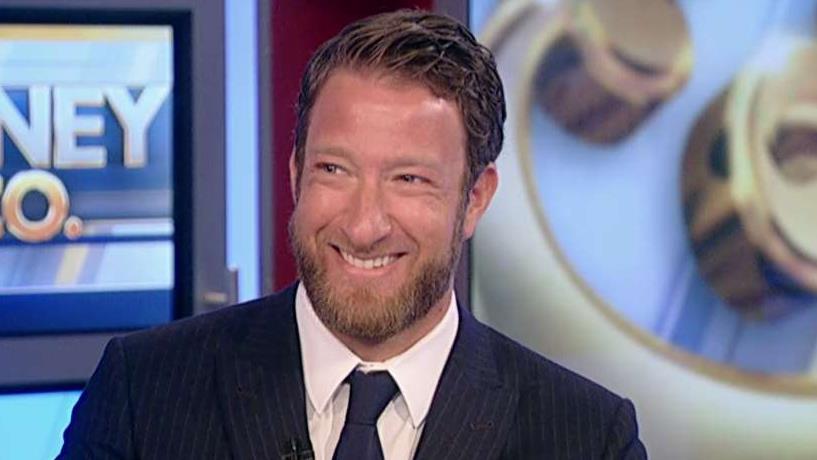NCAA athlete pay debate: Why a political showdown is coming in 2020
College sports executives want Congress to determine how student-athletes should be compensated
The fight over whether college athletes playing lucrative sports for their schools should be compensated is expected to reach a tipping point in 2020 as state and federal lawmakers pressure the NCAA to take action or risk further political intervention.
The NCAA’s board of governors shocked many onlookers last October when they voted to allow athletes to profit from their names, images and likenesses, reversing a long-standing opposition to a concept they argued would do irreversible damage to amateurism. The decision came just weeks after California passed its “Fair Pay to Play” bill, which allowed athletes to sign endorsement deals and hire agents without risking their eligibility.
With 2020 underway, more than 20 states are considering a college athlete compensation bill, while the NCAA has called on Congress to enact federal legislation that would avoid a potentially disastrous state-by-state legal reckoning. While the year ahead will feature plenty of political and legal wrangling in the world of college sports, experts say there are few signs to suggest a resolution is imminent.
DAVID STERN BUILT NBA IN $5B GLOBAL POWERHOUSE
“While the NCAA has traditionally been opposed to the federal government’s involvement in regulating college sports, a federal solution would likely offer them a seat at the table to protect their interests,” said Elizabeth McCurrach, an attorney with the sports and entertainment practice at BakerHostetler. “However, if the sports gambling framework is any indication, an ad hoc, state-by-state framework is more likely.”
The NCAA’s altered bylaws will eventually allow college athletes to profit from endorsement deals and license their likenesses for use in commercial products such as video games and apparel. College sports executives had long said that any form of compensation could unbalance the recruiting process and damage an amateurism model said to be critical to the NCAA’s appeal.
Surprising as it was, the NCAA’s revised outlook contained few concrete policy details and failed to satisfy many critics. The organization noted that any updates to its rules should adhere to certain “principles and guidelines” and forbid athletes from receiving pay tied to on-field performance.
Most of the state bills focus on compensation from name, image and likeness rights, the possibility of legal challenges that result in salaries for college athletes is remote, according to Patrick Rishe, director of the sports business program at Washington University in St. Louis.
“I still think it's less likely than likely,” Rishe said. “However, I get a growing sense that bipartisan politicking is taking place to force college athletics to reallocate a portion of their resources towards student-athletes. But not an easy task when you have to manage Title IX and other issues in the process.”
Traditionally, NCAA supporters have pointed to full-tuition college scholarships and top-flight athletic facilities as proof that college athletes are fairly rewarded for their abilities. Critics frequently point to the NCAA’s $1 billion annual windfall from media rights deals, sponsorships and other sources as proof the existing amateurism model doesn’t go far enough.
If political efforts to address the divide proceed on a state-by-state basis, the NCAA risks facing an untenable legal landscape that would grant schools in some states with major advantages in the recruiting process. Without a federal framework, the NCAA’s current business model, centered on conferences composed of teams operating on a relatively even footing, could fracture.

NCAA president Mark Emmert speaks during a press conference at U.S. Bank Stadium. (Robert Deutsch-USA TODAY Sports)
“If you had a completely unfettered sponsorship model like some state bills are anticipating, the nature of that can slide very quickly into an employee-employer relationship,” NCAA President Mark Emmert said at a Sports Business Journal forum last month.
The NCAA has embraced a bipartisan working group formed by Sens. Chris Murphy, D-Conn. and Mitt Romney, R-Utah, to examine the situation and craft a potential national solution. In December, the senators and Emmert held initial talks on what form federal regulation could take and how to craft an athlete compensation plan that was satisfactory to all parties.
While the NCAA has said it will present rules governing college athlete compensation no later than January 2021, bills active in state legislatures will proceed regardless of its progress. Any bills that are signed into law, such as the California measure taking effect in 2023, will likely meet an immediate legal challenge by the NCAA.
“State-by-state bills is not the optimal end-result, but it is the optimal way to exert maximum pressure on the NCAA, and Congress, to move towards a national plan that is not overly restrictive,” Rishe said. “And if you need evidence, look no further than California.”
As with the NCAA’s policy tweaks, few details have emerged as to what form a federal bill could take.
GET FOX BUSINESS ON THE GO BY CLICKING HERE
The Knight Commission on Intercollegiate Athletics, an advocacy group focused on college sports, proposed one possible solution. In a letter to Emmert, the group suggested a remodeled system that would allow big-revenue schools, specifically those active in college football, to play in a separate division than lower or mid-tier athletic programs.
“Just let them play by a different set of rules – and be upfront about it and be honest about it,” said Knight Commission Co-Chair Arne Duncan, the former secretary of education.
At present, it’s unclear if preliminary talks among some congressmen will yield a real push for federal intervention in the form of legislation on the issue. But considering the NCAA’s deadline and rapid legislative movent at the state level, the state of college athlete compensation should be much clearer by the end of the year.
“Given the numerous players focusing on the college space, legislative activity, and skepticism and impatience with the NCAA and its process, we will see significant developments well before 2021,” said Bruce Siegal, a partner at law firm Taylor English and former general counsel for the Collegiate Licensing Company.
CLICK HERE FOR MORE SPORTS COVERAGE ON FOXBUSINESS.COM

